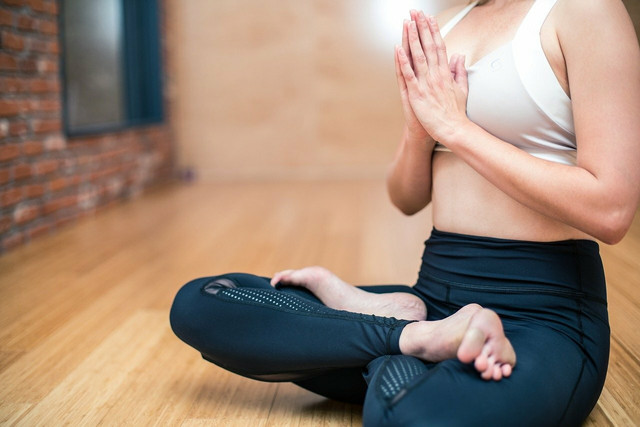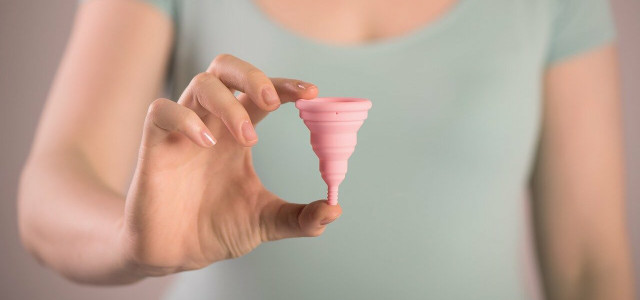Practicing cycle syncing is empowering as it allows you to maximize your hormonal power by optimising your menstrual cycle. Rather than dreading your period, you can start to use it to make your life easier.
Cycle syncing is the process of getting in sync with your menstrual cycle to achieve ultimate wellbeing. Syncing your cycle is the practice of structuring your life around the four phases of the menstrual cycle. This involves making lifestyle choices, such as what you eat, how you exercise, and how you socialise, based on what hormonal phase you are in. The 28 day hormonal cycle plays a huge role in your physical, mental, and social wellbeing. As your hormones fluctuate throughout your cycle, so can your energy and mood. Women report having high levels of self esteem and wellbeing during the middle of their cycle, and high levels of anxiety and depression right before their periods. Practicing cycle syncing is a form of self care as it allows you to have a deeper understanding of your feelings and what your body needs.
Benefits of Cycle Syncing



(Foto: CC0 / Pixabay / Saranya7)
Your hormonal cycle affects everything from your mood, to your physical health, as well as your energy levels. By adapting your life depending on what phase of your cycle you are in, you give your body the support that it needs. Optimising your period is accepting that some weeks are more difficult than others, and cycle syncing is beneficial as it allows you to optimise your life based on your hormones. By noticing the patterns of your emotions, such as the times that you feel in a low mood, anxious or tired, means that you no longer have to be caught out by your emotions. Taking time to reflect on how your body feels allows you to become more intuitive.
In particular, optimising your menstrual cycle can be particularly beneficial if:
- You are trying to conceive.
- You struggle with PMS such as anxiety, bloating and cramping.
- You experience heavy, painful periods.
- You have a low libido.
Cycle Syncing Evidence



(Foto: CC0 / Pixabay / JESHOOTS-com)
Cycle syncing is a term coined by Alisa Vitti, a functional nutritionist and women hormones expert, who has spent the past 15 years researching menstrual cycles.
There is a wide scope of research on the effects that the hormone changes during the menstrual cycle has on women’s physical, mental and social wellbeing. A 2008 study confirmed that the menstrual cycle plays a crucial role in our body’s responses, and a later study from 2019 concluded that ‘menstruation-related symptoms cause a great deal of lost productivity’ for women.
Research also shows that fluctuating hormones effect how women’ physical performance with regards to exercise, and this is something that is being increasingly researched. A 2020 study confirmed that physical performance is influenced by fluctuating hormones, and that it can be lowest in the follicular phase. Food cravings are also influenced by sex hormones, with research from 2015 showing that women experience changes in taste and diet throughout their cycle.
How to Cycle Sync: Step by Step Guide



(Foto: CC0 / Pixabay / Fotorech)
It’s worth taking the time to track your own cycle, so you can learn the exact dates for yourself. An average menstrual cycle is considered to be 28 days, and is broken down into four stages:
- Menstrual: days 1-5 (approx). Levels of oestrogen and progesterone are low and the lining of the uterus is shed. During your period, you naturally feel more introverted, so take the time to slow down and spend time by yourself.
- Follicular: 6-14 (approx). Oestrogen and progesterone levels rise. During this time, you feel more social and spontaneous.
- Ovulatory: 15-17 (approx). Oestrogen levels peak and testosterone and progesterone levels rise. You may feel more sociable and alert during this phase, so it is the perfect time to try new things.
- Luteal: 18-28 (approx). Oestrogen and progesterone levels are still high, and if the egg is not fertilised, then hormone levels decrease and the cycle starts again. Your attention levels will start to be drawn inwards and you are more likely to experience low mood.
Exercise During Each Phase



(Foto: CC0 / Pixabay / lograstudio)
It is beneficial to switch out your workouts depending on your energy levels throughout your cycle, as some phases you naturally have more energy than others. When you start exercising based on your cycle, you may see better results by varying your routine.
- Menstrual: Focus on light movements such as yoga or walking, as your energy levels are lowest at the start of your period.
- Follicular: Some more intense exercise will start to feel good, as testosterone and oestrogen levels start to rise.
- Ovulation: Energy levels may be higher so try more high intensity cardio.
- Luteal: Energy levels may start to lower as your body is preparing for the next cycle, so try some light to moderate exercise.
Cycle Syncing and Nutrition



(Foto: CC0 / Pixabay / silviarita)
Altering your diet depending on which phase of your cycle you are in is an important tool as it allows you to become more intuitive, as you take time to think about how you feel and what your body needs.
- Menstrual: Eat warm and nourishing foods that are high in iron such as dark leafy greens, to support blood loss and energy. Omega-3 supplements will help with PMS symptoms such as low mood and bloating. Sip on some calming tea to help ease cramps.
- Follicular: Try to eat foods that are high in protein, like protein oats or high-protein fruits, as well as eating lots of vegetables to keep your oestrogen levels in check.
- Ovulatory: As oestrogen levels are very high, focus on eating anti-inflammatory foods like whole fruits and vegetables, as well as nuts.
- Luteal: As oestrogen and progesterone levels surge during this phase, eat foods that support the production of serotonin in order to balance your mood, such as leafy greens. Add magnesium rich foods such as dark chocolate to your diet, as this will help with low libido.
The most important message to take from optimising your period is that you should practice cycle syncing based on how you feel that day and what you feel your body needs.
Read on:
- Rise and Shine: 3 Major Benefits of a Morning Workout
- Cinnamon Tea: 4 Health Benefits and How to Make Your Own
- Learning Self-Love: How to be Good to Yourself and Why it Matters
Important Information regarding Health-related Topics.
** Links to retailers marked with ** or underlined orange are partially partner links: If you buy here, you actively support Utopia.org, because we will receive a small part of the sales proceeds. More info.Do you like this post?









